第55章 II(39)
I have no wish to express any harsh feeling with regard to the painful subject which has come before us. If there are any so far excited by the story of these dreadful events that they ask for some word of indignant remonstrance to show that science does not turn the hearts of its followers into ice or stone, let me remind them that such words have been uttered by those who speak with an authority I could not claim. It is as a lesson rather than as a reproach that I call up the memory of these irreparable errors and wrongs. No tongue can tell the heart-breaking calamity they have caused; they have closed the eyes just opened upon a new world of love and happiness; they have bowed the strength of manhood into the dust; they have cast the helplessness of infancy into the stranger's arms, or bequeathed it, with less cruelty, the death of its dying parent. There is no tone deep enough for regret, and no voice loud enough for warning.
The woman about to become a mother, or with her new-born infant upon her bosom, should be the object of trembling care and sympathy wherever she bears her tender burden, or stretches her aching limbs.
The very outcast of the streets has pity upon her sister in degradation, when the seal of promised maternity is impressed upon her. The remorseless vengeance of the law, brought down upon its victim by a machinery as sure as destiny, is arrested in its fall at a word which reveals her transient claim for mercy. The solemn prayer of the liturgy singles out her sorrows from the multiplied trials of life, to plead for her in the hour of peril. God forbid that any member of the profession to which she trusts her life, doubly precious at that eventful period, should hazard it negligently, unadvisedly, or selfishly!
There may be some among those whom I address who are disposed to ask the question, What course are we to follow in relation to this matter? The facts are before them, and the answer must be left to their own judgment and conscience. If any should care to know my own conclusions, they are the following; and in taking the liberty to state them very freely and broadly, I would ask the inquirer to examine them as freely in the light of the evidence which has been laid before him.
1. A physician holding himself in readiness to attend cases of midwifery should never take any active part in the post-mortem examination of cases of puerperal fever.
2. If a physician is present at such autopsies, he should use thorough ablution, change every article of dress, and allow twenty- four hours or more to elapse before attending to any case of midwifery. It may be well to extend the same caution to cases of simple peritonitis.
3. Similar precautions should be taken after the autopsy or surgical treatment of cases of erysipelas, if the physician is obliged to unite such offices with his obstetrical duties, which is in the highest degree inexpedient.
4. On the occurrence of a single case of puerperal fever in his practice, the physician is bound to consider the next female he attends in labor, unless some weeks at least have elapsed, as in danger of being infected by him, and it is his duty to take every precaution to diminish her risk of disease and death.
5. If within a short period two cases of puerperal fever happen close to each other, in the practice of the same physician, the disease not existing or prevailing in the neighborhood, he would do wisely to relinquish his obstetrical practice for at least one month, and endeavor to free himself by every available means from any noxious influence he may carry about with him.
6. The occurrence of three or more closely connected cases, in the practice of one individual, no others existing in the neighborhood, and no other sufficient cause being alleged for the coincidence, is prima facie evidence that he is the vehicle of contagion.
7. It is the duty of the physician to take every precaution that the disease shall not be introduced by nurses or other assistants, by making proper inquiries concerning them, and giving timely warning of every suspected source of danger.
8. Whatever indulgence may be granted to those who have heretofore been the ignorant causes of so much misery, the time has come when the existence of a private pestilence in the sphere of a single physician should be looked upon, not as a misfortune, but a crime; and in the knowledge of such occurrences the duties of the practitioner to his profession should give way to his paramount obligations to society.
ADDITIONAL REFERENCES AND CASES.
Fifth Annual Report of the Registrar-General of England, 1843. Appendix. Letter from William Farr, Esq. --Several new series of cases are given in the Letter of Mr. Stows, contained in the Appendix to this Report. Mr. Stows suggests precautions similar to those I have laid down, and these precautions are strongly enforced by Mr. Farr, who is, therefore, obnoxious to the same criticisms as myself.
Hall and Dexter, in Am. Journal of Med. Sc. for January, 1844.-
Cases of puerperal fever seeming to originate in erysipelas.
Elkington, of Birmingham, in Provincial Med. Journal, cited in Am.
Journ. Med. Se. for April, 1844.--Six cases in less than a fortnight, seeming to originate in a case of erysipelas.